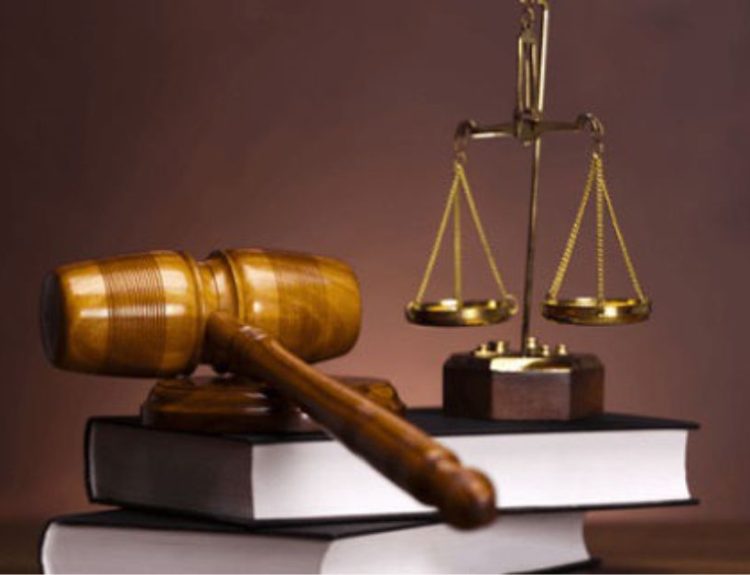Introduction: Law as the Backbone of Civilisation
Law is not merely a system of rules; it is the architecture upon which modern civilisation is built. From ancient codes etched in stone to complex digital frameworks regulating cyberspace, law evolves alongside humanity, preserving order while reflecting the values of the time. It governs the relationships between individuals, mediates disputes, and ensures accountability. Without law, society would devolve into chaos; with it, we achieve structure, predictability, and a shared understanding of rights and responsibilities. In an increasingly complex and globalised world, the role of law is more vital than ever—not only as a means of enforcement but as a guiding framework for fairness, equity, and justice.
The Essence of Law: Order, Liberty, and Balance
At its core, law exists to balance freedom and control. In democratic societies, law protects individual liberty while upholding the collective good. It limits the excesses of both state power and private ambition, ensuring that neither descends into tyranny or exploitation.
Fundamental Purposes of Law:
-
Establishing Standards: Defining acceptable behaviour in various contexts—from traffic rules to corporate governance
-
Maintaining Order: Creating a framework to address conflicts and enforce obligations
-
Resolving Disputes: Providing neutral mechanisms such as courts and tribunals to settle disagreements
-
Protecting Rights and Liberties: Safeguarding fundamental freedoms such as speech, religion, and property
-
Promoting Social Justice: Addressing inequality, discrimination, and systemic abuse through progressive legislation
Law is not static. It evolves through judicial interpretation, legislative amendment, and social reform, responding to the shifting needs and moral compass of society.
Branches of Law: An Overview of Structure and Function
The legal system comprises numerous branches, each addressing a specific dimension of human interaction. While laws may vary by jurisdiction, the fundamental categories remain consistent across modern legal systems.
Key Branches of Law:
-
Criminal Law: Concerned with offenses against society, prescribing penalties for actions like theft, assault, or fraud
-
Civil Law: Governs disputes between individuals or entities, covering contracts, torts, and property matters
-
Constitutional Law: Defines the structure of the state and the rights of its citizens, acting as the supreme legal authority
-
Administrative Law: Regulates government agencies and their interaction with the public
-
International Law: Covers treaties, diplomatic relations, and transnational issues like war crimes or environmental regulation
-
Commercial Law: Addresses the legal aspects of business, including trade, bankruptcy, and corporate responsibility
Each branch plays a distinct role but functions cohesively within a broader legal ecosystem. The interconnectedness ensures that justice is not fragmented but rather administered with consistency and integrity.
The Role of Judges and Courts: Interpreters, Not Just Enforcers
While lawmakers draft statutes, judges interpret and apply them, ensuring their relevance in real-world situations. Courts not only resolve disputes but also set legal precedents that influence future cases. This common law tradition, prevalent in countries like the United Kingdom, United States, and India, allows the legal system to adapt organically.
Functions of the Judiciary:
-
Interpretation of Statutes: Clarifying ambiguities and adapting law to new circumstances
-
Protection of Constitutional Rights: Ensuring that legislative and executive actions align with constitutional principles
-
Judicial Review: Assessing the legality of laws and administrative actions
-
Dispute Resolution: Providing a forum for fair, impartial adjudication
The impartiality and independence of the judiciary are critical to the health of any democracy. Without it, law becomes a tool of power rather than a shield of justice.
The Law and the Individual: Responsibilities and Protections
A well-functioning legal system does not simply dictate; it empowers. It provides every individual—regardless of status, wealth, or background—with a framework within which to pursue life, liberty, and happiness. From signing employment contracts to asserting rights in a court of law, the legal system is woven into the fabric of daily life.
Key Legal Protections for Individuals:
-
Due Process: The right to fair procedures before being deprived of life, liberty, or property
-
Equal Protection: Laws must be applied fairly and without discrimination
-
Freedom of Expression: Protecting the right to speak, write, and communicate freely
-
Right to Privacy: Safeguarding personal data and intimate spaces from unwarranted intrusion
Understanding one’s legal rights—and responsibilities—is essential to active, informed citizenship. Legal literacy is not merely for lawyers; it is for everyone who seeks to live with dignity and agency.
Challenges in the Modern Legal Landscape
The 21st century has introduced complexities that test the boundaries of traditional legal frameworks. Globalisation, digital innovation, environmental degradation, and social unrest present novel legal questions requiring nuanced responses.
Contemporary Legal Challenges:
-
Cyber Law and Data Protection: Addressing online privacy, identity theft, and digital rights
-
Climate Legislation: Creating enforceable obligations to combat climate change
-
AI and Ethics: Regulating algorithms and artificial intelligence in healthcare, finance, and law enforcement
-
Human Rights in Conflict Zones: Upholding international humanitarian standards amid war and displacement
-
Access to Justice: Ensuring equitable legal representation for marginalized communities
These issues demand agility in legal thinking and collaboration across disciplines. The law must not only react but anticipate—preparing societies for ethical, equitable futures.
Conclusion: Law as a Living Instrument of Justice
The law is not carved in stone but written in the living language of a society’s conscience. When administered wisely, it protects the vulnerable, curbs the powerful, and promotes harmony. It reflects who we are—and who we aspire to become. As global citizens in an increasingly interconnected world, our responsibility is not only to obey the law but to engage with it: to question, refine, and uphold it.
The true power of law lies not in its rigidity but in its capacity to evolve—anchored in principle, yet responsive to change. In understanding the law, we understand ourselves: our fears, our hopes, and our enduring quest for justice.












